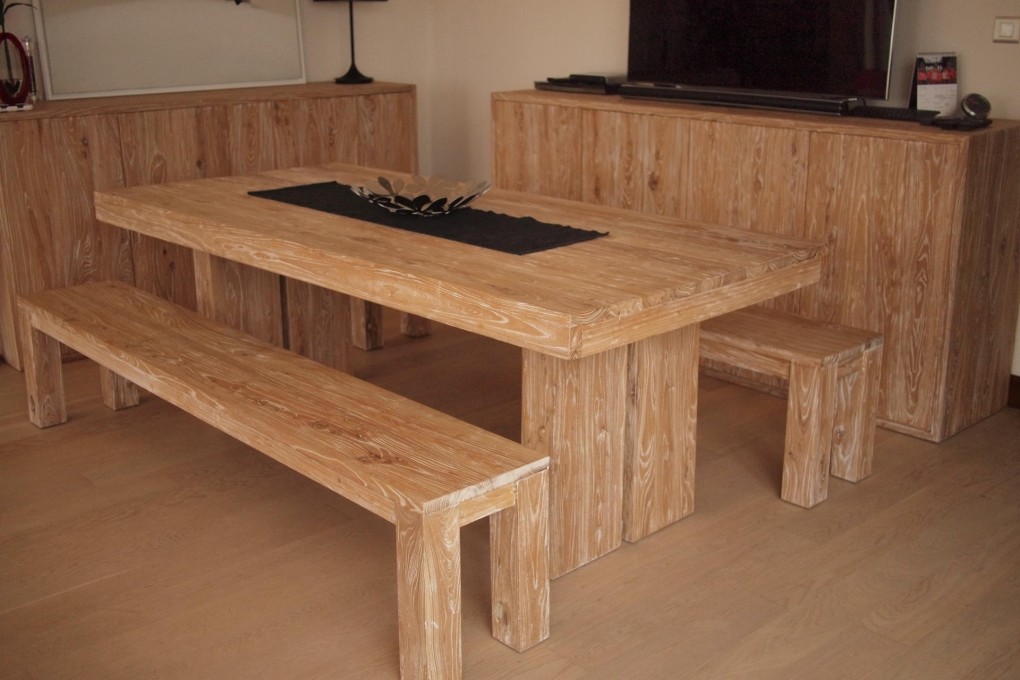A made-to-measure home solves all your problems
Craftsmen can custom make just about any furnishing you need, but beware of shoddy workmanship and materials

In Hong Kong you can buy just about anything - and what you can't find, can be easily custom made. Bespoke is something the city does well, and we're not just talking tailoring. Home furnishings hard and soft, decorator items, even lighting, can be made to order, if you dig around enough.
According to Mark Fraser, an expatriate craftsman who specialises in made-to-measure furniture for awkward-sized Hong Kong flats, just about any kind of furniture can be custom-made and built-in, saving space and maximising storage in smaller homes.
In one Sheung Wan project - a tiny flat of just 230 sq ft - Fraser, who runs Xpat Cabinets, designed a wall unit with cupboards, hanging space and a writing desk, which pulls down Murphy-style to reveal a double bed. He builds loft or platform beds where stair treads become drawers, and headboards shelving nooks. Even the mattress can be made to fit a narrow or odd-shaped space. Combination bookshelf/wine cabinets and customised fitted wardrobes and shoe cabinets have solved many a space problem for clients.
Commissioning bespoke furniture also allows ordinary folk to become involved in the design process, which can be fun, albeit fraught with possible cost blow-outs. While Fraser says he "keeps it affordable" by using plywood with real timber veneer or flexible MDF, one-off prototypes can be expensive, so set budget parameters.
In its guide to commissioning bespoke furniture, UK magazine Country Life also notes that the clearer you are about what you want (or what you don't want), the easier the design process will be. "A sketch, however poor, is useful as are images that express a style, colour or feel," it notes.
Other bespoke furniture outlets in Hong Kong include The Red Cabinet in Wong Chuk Hang, a specialist in lacquer furniture in Chinese and modern styles, and Di-mension Living in Quarry Bay, which custom-makes furniture from salvaged elm wood sourced from old buildings on the mainland and in Southeast Asia.
Di-mension cautions its customers to accept minor "blemishes" as part of the wood's characteristic, which is a timely reminder that buying anything bespoke does involve a certain leap of faith; you're required to lay down a hefty deposit, and in some cases the full price, before you've seen what you're getting. And if you're unhappy with the finished result, can you be bothered arguing the point?